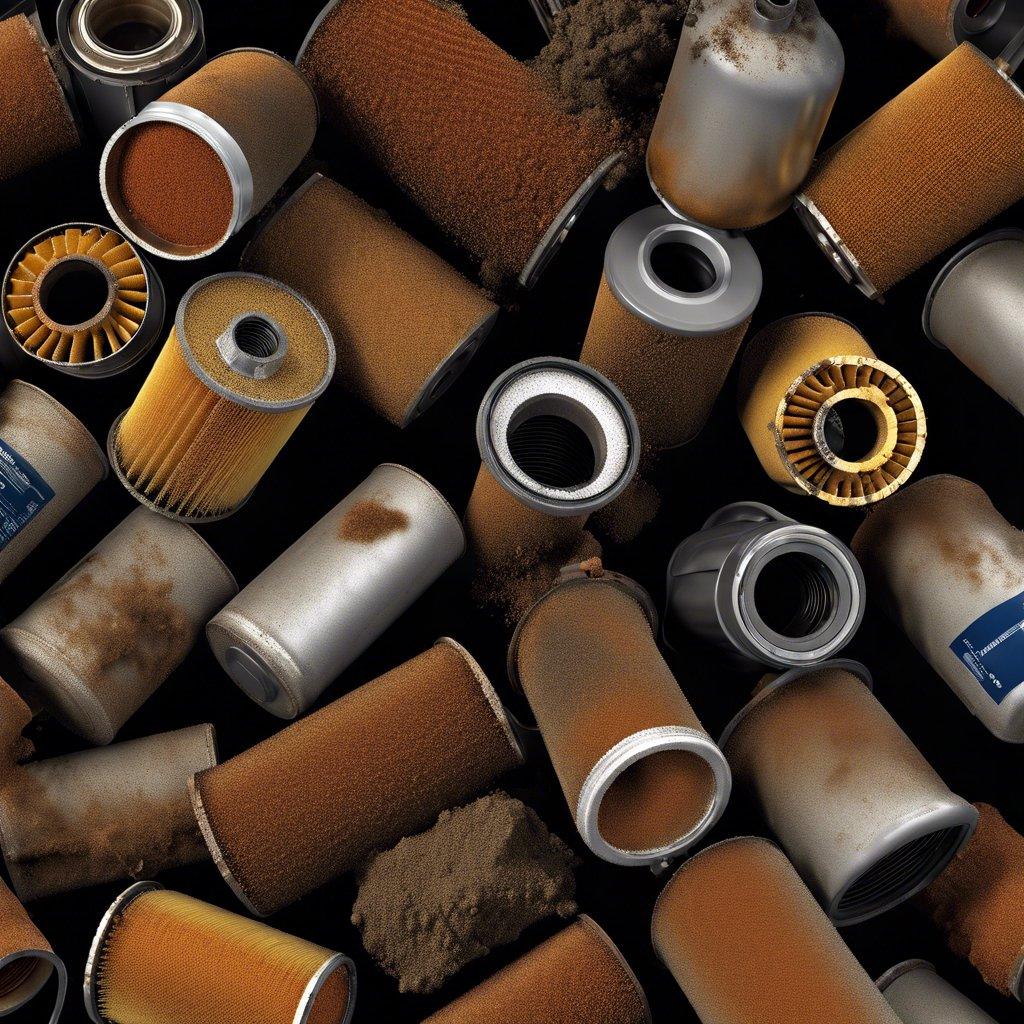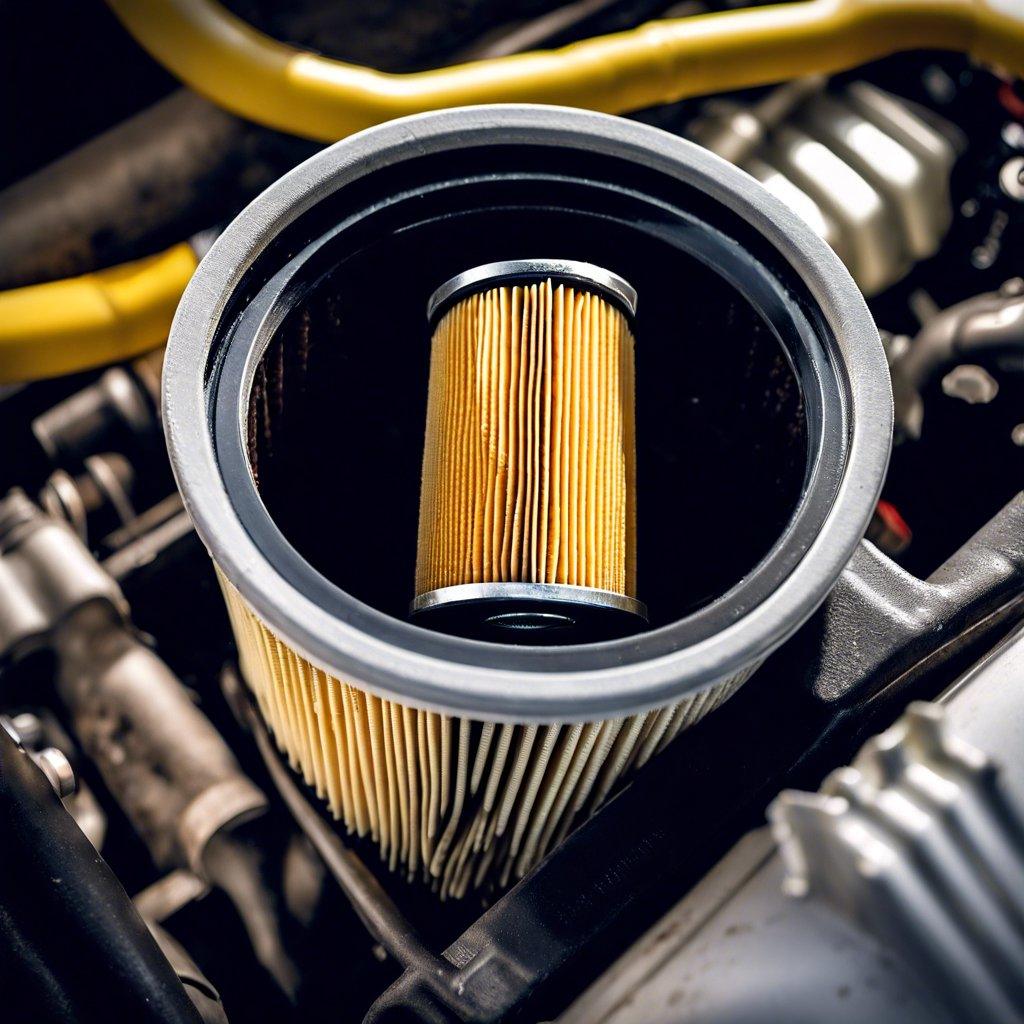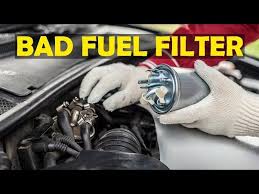What Causes a Fuel Filter to Clog? Insights and Prevention
Contaminants That Clog Fuel Filters: Identifying and Eliminating the Culprits

Fuel filters play a crucial role in maintaining the efficiency and longevity of your vehicle’s engine. However, these essential components can become clogged due to the presence of various contaminants in the fuel system. Understanding the sources of these contaminants and implementing preventive measures is crucial for ensuring optimal fuel filter performance and engine health.
Common Fuel Contaminants
The primary contaminants that can clog fuel filters include:
- Rust and Corrosion Particles: Over time, the fuel system components, such as the fuel tank and fuel lines, can corrode, releasing small metal particles into the fuel.
- Dirt and Debris: Improperly maintained fuel tanks or poor quality fuel can introduce dirt, dust, and other foreign particles into the fuel system.
- Biological Growths: In some cases, bacteria, fungi, or algae can thrive in the fuel system, producing sludge-like deposits that clog the fuel filter.
- Water Contamination: Moisture can enter the fuel system through various means, leading to the formation of water droplets that can clog the fuel filter.
Identifying and Addressing Fuel Contaminants
To identify and address the root causes of fuel filter clogging, consider the following steps:
- Fuel System Inspection: Regularly inspect the fuel system components, such as the fuel tank, fuel lines, and fuel pump, for signs of corrosion, rust, or debris buildup.
- Fuel Quality Monitoring: Ensure that you are using high-quality fuel from reputable sources and monitor for any changes in fuel appearance or odor, which could indicate the presence of contaminants.
- Fuel Filter Replacement: Replace the fuel filter at the recommended intervals specified by the manufacturer to prevent the accumulation of contaminants.
- Fuel System Cleaning: Consider using a fuel system cleaning additive or having a professional perform a fuel system flush to remove any existing contaminants and deposits.
- Preventive Maintenance: Implement a comprehensive preventive maintenance program that includes regular fuel system inspections, fuel filter replacements, and fuel quality monitoring to proactively address potential sources of fuel contaminants.
Maintaining a clean and well-functioning fuel system is essential for ensuring the reliable performance and longevity of your vehicle’s engine. By understanding the common contaminants that can clog fuel filters and implementing proactive measures to identify and eliminate these issues, you can minimize the risk of fuel filter clogging and enjoy a smooth, efficient, and trouble-free driving experience.
Meta Keywords
Fuel filter clogging, fuel contaminants, fuel system maintenance, fuel quality, fuel filter replacement, fuel system cleaning, preventive maintenance
Fuel System Maintenance: Proactive Strategies to Prevent Fuel Filter Clogging
Understanding Fuel Filter Clogging
Fuel filters play a crucial role in ensuring the smooth operation of your vehicle’s engine by removing impurities and contaminants from the fuel. However, over time, these filters can become clogged, leading to various issues, such as reduced fuel flow, decreased engine performance, and even engine failure. Identifying the root causes of fuel filter clogging is essential in developing effective preventive measures.
Common Causes of Fuel Filter Clogging
- Dirt and Debris in Fuel: Impurities, such as rust, dirt, and sediment, can accumulate in the fuel tank and be carried through the fuel system, eventually clogging the filter.
- Microbial Growth: Certain microorganisms, such as bacteria and fungi, can thrive in the fuel, leading to the formation of a slimy, gel-like substance that clogs the filter.
- Fuel Contamination: Inadvertent introduction of water, oil, or other contaminants into the fuel system can cause the fuel filter to become clogged.
- Fuel Additive Buildup: Some fuel additives, if used excessively or improperly, can leave behind residues that clog the filter.
- Wear and Tear: Over time, the filter material itself can deteriorate, leading to increased resistance and clogging.
Proactive Fuel System Maintenance
To prevent fuel filter clogging and maintain optimal engine performance, it is essential to implement a comprehensive fuel system maintenance plan. This includes:
- Regular Fuel Filter Replacement: Follow the manufacturer’s recommended replacement intervals for your vehicle’s fuel filter. Replacing the filter at the appropriate time can help avoid unexpected breakdowns.
- Fuel Tank Cleaning: Periodically cleaning the fuel tank to remove sediment, rust, and other contaminants can help minimize the amount of debris entering the fuel system.
- Fuel Additive Usage: Use fuel additives judiciously, following the manufacturer’s guidelines to avoid excessive buildup in the fuel system.
- Fuel System Inspection: Regularly inspect the fuel system components, such as the fuel lines, fuel pump, and fuel injectors, to identify any potential issues that could lead to fuel filter clogging.
- Fuel Quality Monitoring: Be vigilant about the quality of the fuel you use, and consider switching to a reputable fuel supplier if you suspect contamination.
Implementing Preventive Measures
By implementing a proactive fuel system maintenance plan, you can significantly reduce the risk of fuel filter clogging and ensure the long-term health of your vehicle’s engine. Regular inspections, timely replacements, and vigilance in fuel quality can help you avoid costly breakdowns and maintain optimal engine performance.
The Science Behind Fuel Filter Blockages: Understanding the Mechanisms of Clogging
The Role of Fuel Filters
Fuel filters play a crucial role in the efficient operation of internal combustion engines. These devices are designed to remove impurities, contaminants, and particulate matter from the fuel before it reaches the engine’s fuel system, protecting sensitive components from damage and ensuring optimal performance.
Causes of Fuel Filter Clogging
Fuel filter clogging can occur due to a variety of reasons, including:
- Particulate Matter Buildup: Over time, small particles such as dirt, rust, and other debris can accumulate in the fuel, leading to the gradual clogging of the fuel filter.
- Microbial Growth: Certain microorganisms, such as bacteria and fungi, can thrive in the fuel system, producing byproducts that can clog the fuel filter.
- Water Contamination: The presence of water in the fuel can lead to the formation of emulsions and the growth of microorganisms, both of which can contribute to fuel filter clogging.
- Fuel Composition Changes: Alterations in fuel composition, such as the introduction of biofuels or changes in fuel additives, can affect the compatibility of the fuel with the fuel filter, leading to premature clogging.
The Mechanism of Fuel Filter Clogging
The clogging of a fuel filter occurs through a gradual process, where the contaminants and particulate matter accumulate on the filter’s surface and within its pores. As the filter becomes more restricted, the flow of fuel through the system is reduced, leading to a decrease in engine performance and, in some cases, the triggering of warning lights or engine stalling.
Preventing Fuel Filter Clogging
To prevent the clogging of fuel filters, it is essential to implement the following measures:
- Regular Fuel Filter Replacement: Following the manufacturer’s recommended replacement intervals for the fuel filter is crucial to maintain optimal fuel system performance.
- Fuel System Maintenance: Regularly inspecting and servicing the fuel system, including the fuel tank, fuel lines, and fuel pump, can help identify and address any potential sources of contamination.
- Fuel Quality Monitoring: Ensuring the use of high-quality fuel, free from contaminants and water, can significantly reduce the risk of fuel filter clogging.
- Fuel Additive Usage: The appropriate use of fuel additives, such as detergents and water-absorbing agents, can help maintain the cleanliness of the fuel system and prevent filter clogging.
Understanding the science behind fuel filter clogging is essential for maintaining the optimal performance and longevity of internal combustion engines. By implementing a comprehensive maintenance strategy, including regular filter replacement and fuel system monitoring, engineering and technology professionals can effectively prevent fuel filter blockages and ensure the smooth and efficient operation of their equipment.
Optimizing Fuel Filter Performance: Innovative Solutions to Extend Filter Lifespan
Fuel filters play a vital role in maintaining the integrity of a vehicle’s fuel system, yet they are often the unsung heroes of engine performance. As the first line of defense against contaminants, fuel filters can become clogged due to a variety of factors, including the buildup of dirt, debris, and even microbial growth. This clogging can lead to a range of issues, from decreased fuel efficiency to engine stalling and increased maintenance costs.
Addressing the Causes of Fuel Filter Clogging
To optimize fuel filter performance and extend its lifespan, it is essential to understand the root causes of clogging. Some of the primary factors that contribute to fuel filter clogging include:
- Fuel Quality: Poor-quality fuel, containing high levels of impurities, can accelerate the accumulation of sediment and particulates within the fuel filter.
- Fuel System Wear and Tear: As a vehicle ages, the fuel system components, such as fuel pumps and injectors, can degrade, releasing contaminants that eventually end up in the fuel filter.
- Environmental Conditions: Operating a vehicle in dusty, humid, or cold environments can increase the likelihood of contaminants entering the fuel system and clogging the filter.
Innovative Solutions for Fuel Filter Longevity
To address these challenges and optimize fuel filter performance, manufacturers have developed a range of innovative solutions. Some of these include:
- Improved Filter Design: Advancements in filter media, construction, and flow dynamics have led to more efficient and durable fuel filters that can better withstand the rigors of real-world driving conditions.
- Dual-Stage Filtration: Some fuel filter systems incorporate a dual-stage design, with a coarse pre-filter followed by a finer main filter, to capture a wider range of contaminants and extend the overall filter lifespan.
- Fuel Additive Integration: Certain fuel filters are now designed to incorporate fuel additives, such as detergents and lubricants, which can help to clean the fuel system and reduce the buildup of deposits.
Maintenance and Proactive Measures
In addition to the innovative design solutions, proper maintenance and proactive measures can also play a crucial role in optimizing fuel filter performance and extending its lifespan. These include:
- Regular Replacement: Following the manufacturer’s recommended replacement intervals for the fuel filter is essential to prevent clogging and ensure optimal engine performance.
- Fuel System Cleaning: Periodic fuel system cleaning, using specialized cleaning additives or professional servicing, can help to remove accumulated deposits and contaminants, reducing the strain on the fuel filter.
- Fuel Quality Monitoring: Regularly monitoring the quality of the fuel being used, and addressing any issues with fuel contamination or degradation, can help to minimize the risk of fuel filter clogging.
By understanding the causes of fuel filter clogging and leveraging the latest innovative solutions, engineering and technology professionals can optimize fuel filter performance, extend its lifespan, and ensure the smooth and efficient operation of vehicle fuel systems. This not only enhances overall engine performance but also contributes to improved fuel economy, reduced maintenance costs, and a more reliable driving experience.




Post Comment